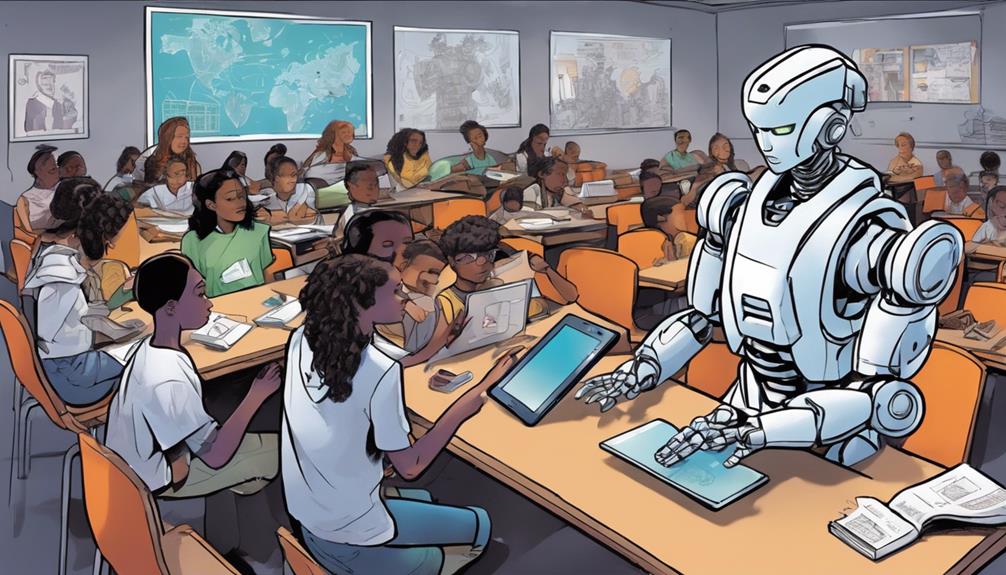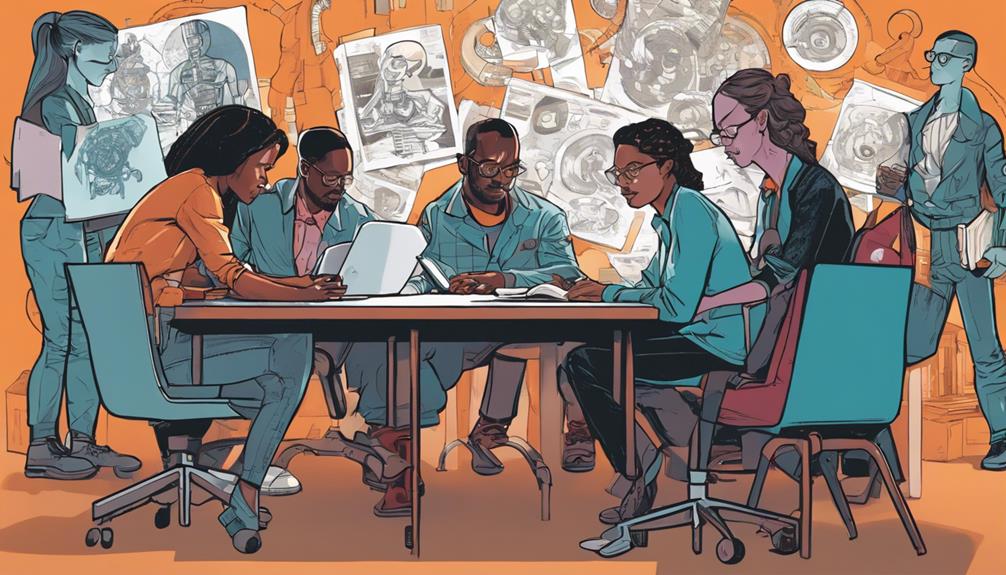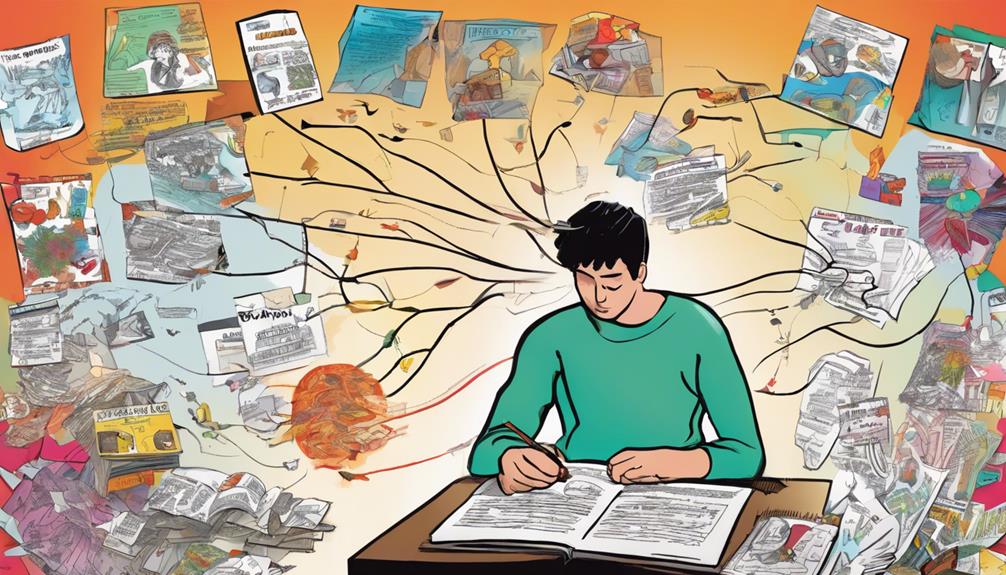The academic community is buzzing about the ethical challenges raised by AI. From revolutionizing education with virtual tutors like ChatGPT to dealing with plagiarism detection difficulties, educators are entering uncharted territory. As educational institutions adjust assessment techniques to keep pace with AI progress, they must confront privacy issues, algorithm biases, and responsibility problems. As they navigate these challenges, it is crucial to find a balance between utilizing the advantages of AI and maintaining ethical principles. If you’re interested in learning about how academia is addressing these AI ethics dilemmas, your exploration will uncover a plethora of stimulating debates and inventive solutions.
Key Takeaways
- Schools face dilemmas on AI data privacy and student information security.
- Addressing algorithm biases crucial to prevent perpetuating societal inequalities.
- Establish transparency in AI decision-making for ethical education practices.
- Defining accountability for AI actions in academic settings remains a challenge.
- Balancing AI benefits with ethical considerations is essential for academic integrity.
Impact of AI on Education

AI advancements are reshaping the landscape of education, revolutionizing the way students learn and teachers instruct. Imagine having a virtual tutor like ChatGPT that can help you understand complex math problems or explain challenging concepts in a way that makes sense to you.
With AI tools like ChatGPT, the possibilities for personalized learning experiences are endless. Teachers can leverage these tools to provide individualized support to students, catering to their unique learning styles and needs.
As technology continues to advance, it's exciting to think about how AI will transform the traditional classroom setting into a dynamic and interactive learning environment where students can thrive and excel like never before.
Academic Integrity Challenges

When dealing with academic integrity challenges involving AI technology, educators face the task of addressing the potential limitations in detecting bot-generated content accurately. Plagiarism detection software, while useful, may not always catch content created by AI like ChatGPT. OpenAI's plagiarism detector, for example, is only 26% accurate in spotting such content.
It's vital to have open discussions with students about the boundaries and risks of using AI tools for academic purposes. Considering the acceptability of students utilizing ChatGPT partially in their work is another aspect to ponder.
As schools navigate these challenges, they may need to evolve towards more internal assessment methods that can better gauge students' true understanding and originality. Balancing technology with academic integrity is indeed a nuanced dance!
Future Assessment Trends

Consider embracing innovative assessment methods to align with the evolving landscape of AI advancements in education. Embracing change is crucial, especially when it comes to evaluating student performance. Here, take a look at a comparison of traditional and potential futuristic assessment techniques:
| Traditional Assessments | Future Assessment Trends |
|---|---|
| Written exams | AI-enhanced assessments |
| Multiple-choice tests | Virtual reality simulations |
| Presentations | Gamified assessments |
| Essays | Adaptive learning platforms |
Imagine a world where exams are interactive simulations or where learning feels like playing a game. These futuristic assessment methods not only cater to different learning styles but also prepare students for a technology-driven future. Let's venture on this educational journey together!
Ethical Dilemmas in AI

Embracing innovative assessment methods is essential for addressing the ethical dilemmas posed by AI advancements in education. When maneuvering through the complex landscape of AI in academia, it's critical to ponder the following:
- Privacy Concerns: AI systems may collect sensitive student data.
- Bias in Algorithms: AI tools can perpetuate biases present in society.
- Transparency Issues: Understanding how AI makes decisions is essential.
- Accountability Challenges: Determining responsibility for AI actions.
- Impact on Learning: Balancing the benefits of AI with ethical considerations.
Resources and Recommendations

Access additional resources on ChatGPT and AI to enhance your understanding and knowledge in the academic domain.
Explore online articles discussing the latest advancements in AI ethics and how they intersect with education.
Utilize chat prompts provided by experts to practice ethical AI interactions.
Delve into attachments containing in-depth analyses of ChatGPT's impact on academic integrity.
Join online communities like Richard James Rogers' group for engaging discussions on AI ethics.
Check out Jeremie Tisseau's work for expert insights into the world of ChatGPT and AI.
Remember, staying informed is key in maneuvering the complexities of AI ethics in education.
Frequently Asked Questions
How Can Educators Ensure Students Use Chatgpt Ethically in Their Work?
To guarantee students use ChatGPT ethically in their work, educate them on responsible usage, discuss limitations, and promote critical thinking. Emphasize the importance of originality and integrity in academic tasks.
What Are the Potential Consequences of Students Relying on AI for Assignments?
Relying heavily on AI for assignments may hinder critical thinking and creativity. Understand the risks of plagiarism and the importance of independent work. Balance AI use with personal effort to develop essential skills for academic success.
Are There Guidelines for Universities to Adapt Assessments to AI Advancements?
Are there guidelines for universities to adapt assessments to AI advancements? Consider how educational institutions can integrate AI tools effectively into assessment methods, ensuring both academic integrity and student learning are prioritized in the process.
What Are the Concerns Surrounding AI Systems Becoming Self-Aware in Education?
Consider the concerns of AI systems gaining self-awareness in education. Discuss potential ethical implications, responsibilities, and rights of self-aware AI. Explore the impact on learning environments and the need for careful consideration in implementation.
How Can Schools Effectively Integrate AI Tools Like Chatgpt Into Their Curriculum?
You can enhance education by integrating ChatGPT effectively. Did you know Turnitin is developing a bot-detection tool? Consider AI's impact on assessments. Some universities are adapting. Teach students ethical ChatGPT use. Embrace AI responsibly.
Conclusion
In this exciting journey through the intersection of academia and AI ethics, the academic world stands at a crossroads, ready to embrace the challenges and opportunities that lie ahead.
As we navigate the complexities of integrating AI technologies into education, let's remember to approach this new frontier with curiosity, caution, and a sprinkle of optimism.
The future of learning is bright, with AI paving the way for innovative assessment methods and ethical considerations that will shape the academic landscape for generations to come.










